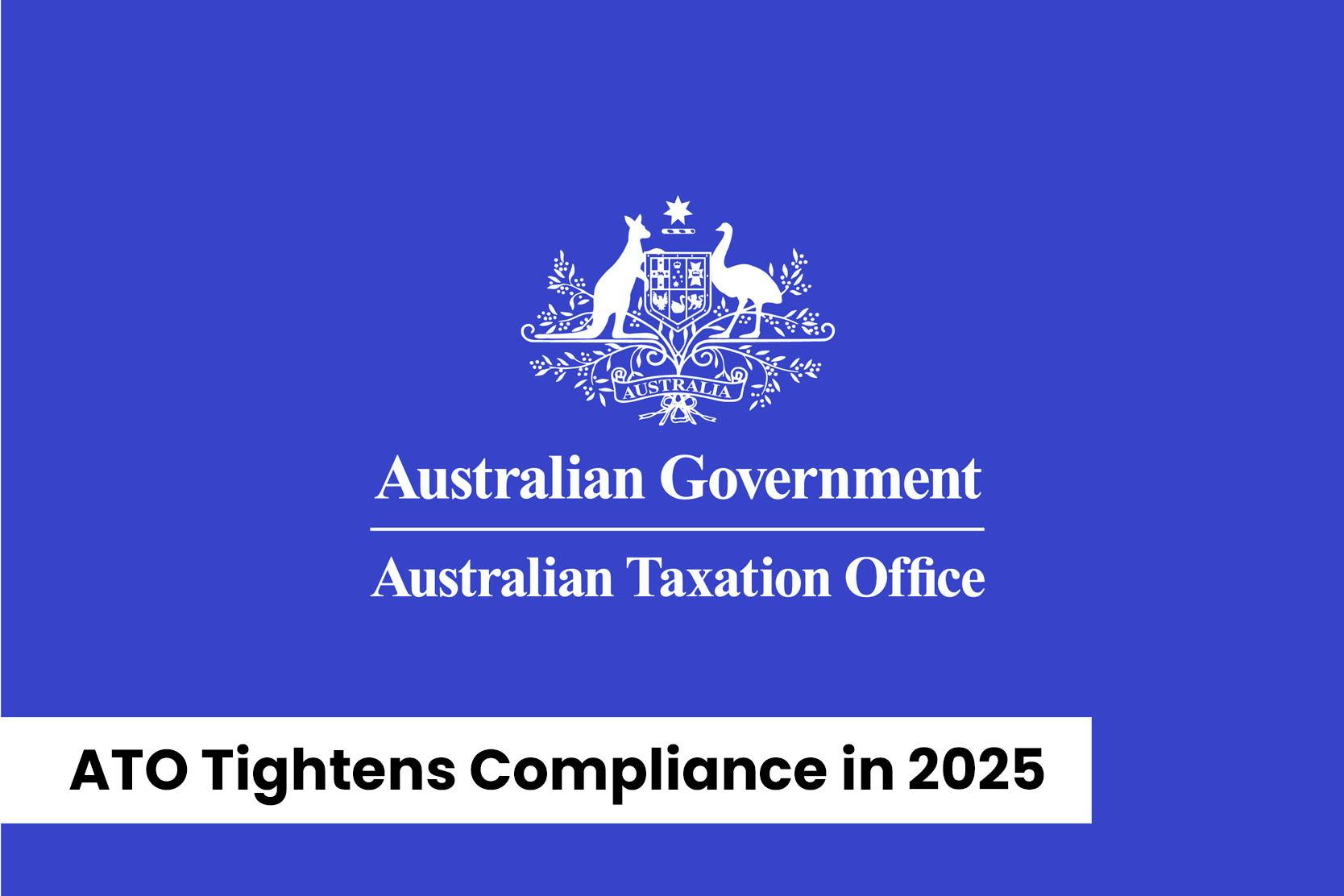ATO Tightens Compliance in 2025: What You Need to Know

The Australian Taxation Office (ATO) is stepping up its compliance measures in 2025, with a strong focus on small business tax obligations. These changes are designed to encourage timely tax reporting, reduce outstanding debts, and target non-compliant behaviour. If you’re a small business owner, it’s important to understand these updates and how they may affect your operations.
ATO compliance focus areas to know for 2025
Stricter Debt Collection Efforts
As of 2025, the ATO is making a concerted effort to recover over $35 billion in unpaid tax debts, much of which is owed by small businesses. This includes overdue amounts related to:
- Pay As You Go (PAYG) withholding
- Goods and Services Tax (GST)
- Superannuation Guarantee (SG) contributions
Businesses with outstanding debts are likely to face stronger enforcement actions, including firmer repayment terms and potential penalties.
Increased Scrutiny on Tax Reporting and Deductions
The ATO is putting greater emphasis on accurate and honest tax reporting. Small business owners must ensure that:
- Income is correctly classified as business or personal.
- Deductions and tax concessions are claimed accurately.
- Financial records are up-to-date and well-documented.
Improving transparency in these areas will be key to avoiding audits or penalties.
Crackdown on the Shadow Economy
To reduce tax evasion and under-reporting, the ATO continues to expand its Shadow Economy Compliance Program. In 2025, businesses engaging in cash-only transactions or off-the-books activities will face increased monitoring.
This program supports a level playing field by targeting those who deliberately understate income, inflate deductions, or fail to lodge returns.
Monthly GST Reporting for Non-Compliant Businesses
From 1 April 2025, approximately 3,500 small businesses with a history of late or missed lodgements will be transitioned from quarterly to monthly GST reporting.
This change aims to:
- Encourage timely lodgements.
- Improve cash flow tracking.
- Help businesses stay on top of their tax responsibilities.
If your business has struggled with GST compliance, now is the time to review your processes and avoid being moved to monthly reporting.
Stronger Penalties for Non-Compliant Tax Practitioners
The ATO, in coordination with the Tax Practitioners Board (TPB), is cracking down on advisers who enable tax evasion or provide poor advice. In 2025, tax agents who breach standards could face:
- Federal Court penalties
- Bans of up to 10 years
- Increased scrutiny across all client files
Working with a trusted, registered tax accountant has never been more important.
Implementation of Payday Superannuation
Though not taking effect until 1 July 2026, the ATO is preparing for payday superannuation, a reform requiring employers to pay super at the same time as wages.
Businesses should start planning now to integrate this change smoothly into their payroll systems.
What Should Small Business Owners Do Now?
To stay compliant and avoid penalties in 2025, small business owners should:
- Work closely with a registered tax agent or accountant.
- Review and update their record-keeping systems.
- Lodge all outstanding returns before the 15 May deadline.
- Use BAS lodgement extensions wisely. While 28 April is the due date, working with a registered tax agent allows for an extension to 26 May.
Removal of Tax Deductibility for ATO Interest Charges
Effective 1 July 2025, General Interest Charges (GIC) and Shortfall Interest Charges (SIC) incurred will no longer be tax-deductible. Previously, businesses could claim deductions for these charges, which are imposed for late tax payments and underpaid tax liabilities, respectively. The removal of this deductibility means businesses will bear the full financial impact of these charges, increasing the cost of late or incorrect tax payments.
Final Thoughts
The ATO’s compliance crackdown in 2025 signals a significant shift in how small businesses will need to manage their tax obligations. With tighter deadlines, more frequent reporting requirements, and enhanced enforcement powers, preparation is key.


